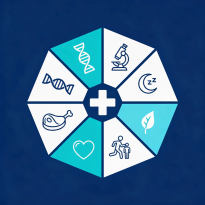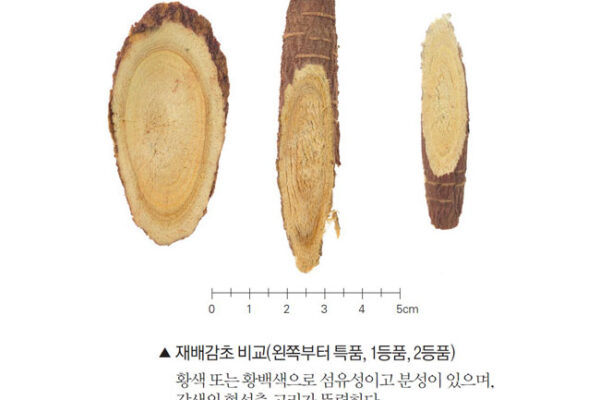Cholestonia Diet and Lifestyle Guide: 9 Essential Foods and Daily Habits
In the framework of 8 Constitution Medicine, Cholestonia (목음 체질) represents a unique balance—strong liver energy but a vulnerable large intestine. While it’s part of the Wood group, this constitution is distinct from its counterpart Hepatonia (목양 체질). Where the latter develops disease from liver overactivity, Cholestonia (목음 체질) is more prone to illness due to weakened colon function and internal coldness in the lower abdomen. Managing this constitution effectively involves not just food choices but how food is prepared, eaten, and combined with daily habits.
Understanding the Core of Cholestonia Health
In Cholestonia (목음 체질), cold energy tends to settle in the lower body, especially around the intestines and abdomen. Meanwhile, heat builds up in the upper body, leading to an imbalance that affects both mood and physical health. Craving cold drinks or raw foods often worsens this imbalance—even if the individual feels temporarily refreshed. Over time, it can lead to poor digestion, chronic fatigue, and emotional instability.
9 Essential Lifestyle Practices for Cholestonia diet
- Always eat warm meals—cold food weakens the large intestine.
- Warm the lower abdomen using heat packs, clothing, or baths.
- Avoid cold drinks, raw vegetables, and salads.
- Choose root vegetables like radish, carrot, and burdock.
- Incorporate warming proteins like grilled white fish and beef broth.
- Avoid leafy greens and cold seafood such as mackerel or clams.
- Engage in light exercise that promotes warmth and sweating.
- Minimize stress and avoid overreacting to minor body changes.
- Limit alcohol and quit smoking to prevent colon weakness.
Harmful Foods to Avoid
- Leafy greens: cabbage, lettuce, spinach, kale, celery
- Cold seafood: sardines, tuna, mackerel, shellfish
- Cold foods: ice cream, iced drinks, raw fish
- Cold fruits: grapes, kiwi, pineapple, bananas
- Other: buckwheat, barley, red beans, cocoa, raw cucumber
- Cold-based activities: swimming, cold baths, or exposure to cold environments
Beneficial Foods to Embrace
- Root vegetables: radish, lotus root, garlic, onion
- Cooked seafood: shrimp, crab, sea cucumber
- Mushrooms: shiitake, oyster, pine, medicinal mushrooms
- Meats: beef, lamb, duck (preferably as broths or stews)
- Dairy: warm milk, yogurt, butter
- Nuts and seeds: chestnuts, walnuts, almonds
- Grains: rice, millet, sorghum
- Herbal teas: jujube, ginger, perilla leaf
- Warm fruit: steamed pear, room-temp melon, oranges (not chilled)
Daily Exercise Tips
Avoid cold or water-based activities like swimming. Instead, focus on:
- Jogging or brisk walking
- Hiking
- Stretching or yoga in warm environments
- Sauna or warm baths with light sweating

Sample Daily Meal Plan for Cholestonia diet
Morning
Breakfast:
- Warm rice porridge with garlic, carrot, and onion
- Boiled egg
- Roasted chestnuts or almonds
- Warm jujube tea
Mid-Morning Snack:
- Baked sweet potato
- Warm barley tea
Afternoon
Lunch:
- Steamed rice
- Stir-fried burdock and lotus root in sesame oil
- Grilled cod
- Warm miso soup
- Soft tofu with warm soy sauce
Afternoon Snack:
- Warm steamed pear
- Roasted walnuts
- Warm cinnamon tea
Evening
Dinner:
- Beef bone broth with steamed pumpkin
- Boiled radish and shiitake mushrooms
- Small bowl of glutinous rice
- Steamed crab or shrimp
Before Bed:
- Warm herbal tea (e.g. mugwort or ginger)
- Use a heating pad on the abdomen
- Light stretching or warm bath
Conclusion
Managing Cholestonia diet begins with respecting its cold-vulnerable digestive system. Warmth—in food, environment, and emotion—is essential. By following the right diet and maintaining daily habits that support internal balance, you can prevent chronic illness and achieve long-lasting physical and emotional vitality.
For the original Korean text, visit here.
If you’re curious about the basics of traditional Korean medicine and health, read the following article: The Truth About 8 Constitution Medicine: A Revolutionary Healing Framework Explained
What Your Sleeping Position Says About Your Health
Learn Why Studying JangSang Medicine is Important.
Frequently Asked but Silly Questions (Foods Good for the Liver??)



